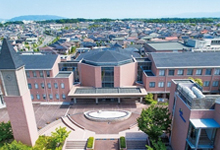Frailty, which refers to "a state in which the body and mind deteriorate with age," is considered to be a major risk factor for requiring long-term care in the elderly aged 75 and over (late-stage elderly).
This time, Professor Katsuhiko Takatori and Associate Professor Daisuke Matsumoto of the Department of Physical Therapy, Kio University, et al. revealed to be a risk factor for deterioration of
Factors acting defensively against the development of frailty include not only physical factors (walking speed, muscle strength, etc.) but also social factors (social activities, social support, etc.).However, few studies have investigated the relationship between changes in social participation and frailty stage transitions in the elderly.
Therefore, in this study, we investigated whether changes in social participation activities (exercise-based social participation, community-based social participation, non-exercise-based hobby-based social participation, volunteer-type activities) and changes in trust in the community are associated with frailty. A 4-year prospective follow-up study was conducted to examine how changes in stage (frailty, pre-frailty, healthy) were affected.
The subjects of the survey were 4,249 elderly people living in City A who were not certified as needing long-term care.First, in the frailty group at the beginning of the survey, social participation activities that significantly affected the improvement of the frailty stage were not observed.On the other hand, in the pre-frailty group, an increase in exercise-related social participation was associated with improvement to a healthy state, and a decrease in community-related social participation was recognized as a risk factor for deterioration.In the healthy group at the beginning of the survey, increased community participation was associated with frailty as a protective factor, and decreased trust in the community was recognized as a risk factor for frailty.
This study indicates that frailty in elderly people may have different improvement/worsening factors depending on the stage.Once you fall into frailty, it is not easy to get out of it, and the subsequent improvement rate is very low. found to play a role.It can also be said that the connection with the community is important in terms of frailty prevention.

